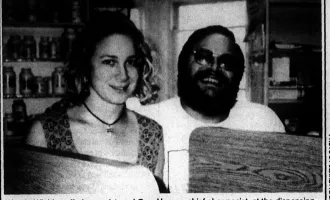Preparing to Make Evidence-Based Career Decisions
“My friend told me that I should think about a career in medical writing because there are lots of jobs, and they need PhD’s, and I like to write. But—my friend also said writers tend to be freelancers, and I need a regular paycheck since I have a family. I haven’t been able to find much information about medical writing but I’m pretty sure it’s not right for me.”
This all-too-typical statement demonstrates two huge mistakes made by many graduate students and postdoctoral fellows as they try to gather information about their career options.
1. Graduate students and postdocs rely too heavily on uninformed advice from labmates or other friends when making career decisions. That leads to misinformation and overgeneralization. When trainees make career decisions based on generalized statements such as: “Medical writers are freelancers,” or “Management consulting is a bad fit for me because it requires 100% travel,” it’s an indication that they have not learned enough about that career path. They are in danger of making an important decision about a potentially viable career path based on incorrect or incomplete information. Are there medical-writing careers that do not require freelancing? Yes, most of them, probably. Is it possible to find consulting firms or subfields or niches that allow employees a chance to spend most of their time at home? Absolutely!
2. After a quick, unsuccessful search, graduate students and postdocs often assume that no information is available about career options. Actually, there is PLENTY of information to be found about medical writing careers, and other career paths. One of the most comprehensive resources on careers for PhD scientists is myIDP, a career development tool hosted by Science Magazine’s careers site and co-authored by UCSF’s OCPD staff. For each of the 20 scientific career path categories represented on myIDP, we’ve provided links to several articles, books, and professional societies. (After you’re registered on the myIDP site, you’ll need to navigate to the “Read About Careers” section.)
But myIDP is just a starting point: don’t limit yourself to the information provide on that site; much more can be found at Science Careers and other web-based publications. Many career paths have an organization that promotes and represents the interests of the field—such as RAPS (Regulatory Affairs Professionals Society) whose members include many PhD’s who have moved from their bench research roles into careers where they assist with the development of drugs. Such organizations often provide inexpensive membership rates for trainees. Even without membership access, their Web sites often provide excellent information about what it’s like to work in the field. And speaking of medical writers, another professional organization with a useful web site is the American Medical Writers Association, which offers extensive information about the field, training programs for entering the field, and current job descriptions that might help those considering a medical-writing career gain a better understanding of the various job options available.
Additionally, there are some excellent books about career options for scientists. Many are out there, but here are two examples:
- At the Helm, by Kathy Barker (about academic careers)
- Career Opportunities in Biotechnology and Drug Development, by Toby Freedman (features information about many career options for scientists in the industry sector)
Scientists interested in exploring career options should begin by reading about a variety of career options using the resources listed above. But don’t forget about personal interactions: This may be the most important method for gathering information on career options. Attend career panels on your campus or at conferences for your scientific society and talk to the presenters. Most importantly, set up a one-on-one informational interview with a scientist who has transitioned into a career you find interesting and who will meet with you to provide advice and a description of their career path. You’ll end up better informed and you’ll benefit from the advice of a new member of your network. Conferences are a great place to do this—just don’t be a wallflower!
It takes a lot of work to gather enough reliable information for you to make informed decisions about your future career options. This is not something you should expect to accomplish in a day or a week, so start early, make use of the many resources available to you through OCPD and beyond.

